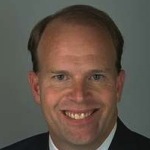Q: What's your biggest financial planning tip for new physicians?
Chris Renner: With all due respect to wealth accumulation through a retirement plan, remember that YOU are your biggest investment. Focus on growing your career and demonstrating diligence, discipline, and productivity. Instead of punching the clock and trading time for money, get in the habit of creating amazing value for your patients, your partners, your family, and your employees. The difference between ordinary and extraordinary is often just that little extra.
One of the best ways to do this is by being radically reliable. Everyone is capable of doing their jobs. That’s why Vituity hired you. But figuratively speaking, are you willing to run when you can walk, be selfless instead of selfish, or persist when you can give up? Developing a reputation as the dependable person who accomplishes at a high standard — no matter how sizable the task — will bring its own rewards, both personal and financial. When you make yourself indispensable in this way, your earning potential and job security will follow.
Your efforts won't always be recognized immediately. But if you keep showing up, you will always benefit in the long term. And you will also get what money can't buy: the personal satisfaction of a job well done.
Q: Today, employed physicians outnumber self-employed physicians. How can a doctor's choice of practice model impact their finances?
CR: The employment model you choose can have a significant impact on your after-tax income, how much you save for retirement, and how early you're able to retire.
Many millennial job seekers are drawn to the employment model of corporations. They like the idea of having a predictable schedule and a steady paycheck. They like the idea of having their employer take care of their health plan, their disability insurance, and their retirement.
Now, every doctor is different; maybe the employment model is ideal for some. But if they're willing to take control of their finances and do a little extra research, I think that most physicians would appreciate the flexibility and financial benefits of the partnership model.
Many physician job seekers don't fully understand the tax ramifications of working for a corporation versus a partnership. It's important to consider the full benefits package, not just the salary. In addition, being an owner in a physician partnership can provide significant advantages that typical employment doesn't offer.
For example, employers generally don't allow you to take deductions outside of a 401(k). By contrast, self-employed physicians can deduct expenses such as CMEs, health plan premiums, home office expenses, business-related cell phone costs, travel, and Internet costs.
Q: Where should I invest my retirement savings?
CR: I recommend following what's called the hierarchy of savings. In a nutshell, after you’ve set aside emergency savings equal to three months of wages, when it comes to investment accounts, tax-free beats tax-deferred beats taxable.
Health Savings Accounts are tax-free accounts. So when you start investing, you probably want to max that out first. Then move on to tax-deferred 401(k) plans and defined benefit plans. And finally, taxable investments would involve things like paying down student loan debt and saving for your kids' college, because you're paying for them with after-tax dollars.
Of course, there are minor exceptions to this rule. For example, if your employer matches a certain percentage of your 401(k) contributions, you should prioritize enough contributions to get the full match.
Q: Can your location impact your financial future?
CR: Absolutely. I honestly don't think we talk about this enough, especially with the average medical school graduate carrying almost $200,000 in debt.
Now, I realize that some people choose to work in certain places for family and personal reasons. I spent 20 years paying a sky-high mortgage and taxes in California because my family loved the lifestyle. Then we finally moved to Idaho. We’re amazed at the quality of life we enjoy here while still saving money every month.
All this to say, if you have some freedom around where you work, and if your primary goal is to pay off debt or save for the future, choosing the right location can be a huge help.
Location factors go beyond local physician salaries and cost of living. Check out income, sales, and property taxes in the state and region. It's also a good idea to look at competition in your specialty in case you want to change positions at some point. Also, consider the malpractice environment. Will you be stuck paying more for insurance due to unfavorable tort laws?
Ultimately however, I believe that people should move to an area because they feel comfortable there. I often tell people to buy a house because they love it, not because of its investment potential. People should select their ultimate location the same way.
Q: What's one secret to saving money that no one thinks about?
CR: Learn to cook. The biggest expense for most people who are spending more than they bring in is eating out. I know it’s convenient to order in right now, but after the delivery fees, the meal, and the tip, it’s not hard to spend $40-75 on a meal that can cost as little as $10–15 if you prepare it at home.
Q: How does Vituity’s partnership model impact its providers?
CR: Physician partners can shelter $86,000 a year between a 401(k) and a Defined Benefit Plan, while most corporate employers only let you set aside between $18,000 and $36,000 per year in a 401(k), including matching funds. So at many other groups, you’ll need to work eight years longer to reach your retirement goals than you would at Vituity.
Working clinical shifts can be mentally and physically exhausting, and the years and mileage can take their toll. Wouldn’t you rather have the option of reducing your shifts or retiring early in your 50s rather than at 65?
Q: What should physician job seekers ask potential employers/partners about benefits?
CR: When conducting your first job search, do your homework on potential employers. Online research reveals a lot, so make sure you’re up to date on each company’s stability of practice – particularly now. Prepare a list of questions to ask during each interview. Take advantage of financial planning resources the prospective organization offers to help you understand how the company’s benefits compare to the competition. At Vituity, we are 100% owned by our practicing physicians, so we work hard to make sure you have the resources you need to make the right financial decisions for you.
Be objective about the salary and bonuses and consider the tax implications of the employment arrangement. Ask yourself: what will be the best choice for me in a decade when I might be preparing to send my kids to college? Farther down the road, will I be able to scale back my workload or retire when I’d like?
Physician contracts are not “take it or leave it” propositions. There’s room to negotiate on things like salary, loan forgiveness, and non-compete clauses. Remember to get everything in writing, because handshake deals aren’t legally binding. If you don’t like a contract provision, and there’s no reasonable way to change the terms, then that’s a strong signal to walk away.
Take your time, do your homework, and don’t be afraid to stand up for your interests.
Originally published September 5, 2019























